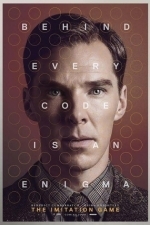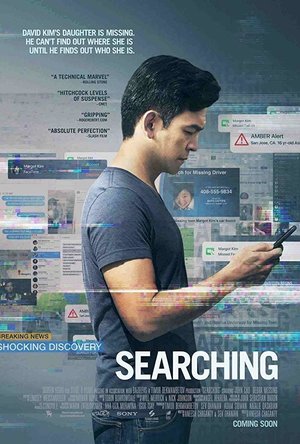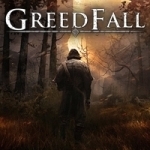Search
Search results
Goddess in the Stacks (553 KP) rated Enchantress of Numbers: A Novel of Ada Lovelace in Books
Apr 2, 2018
Enchantress of Numbers has been making the rounds lately - it seems there's been an interest in books about women in STEM, which is a good thing. Ada Lovelace is considered to be the first computer programmer, though "computers" as we know them didn't really exist at the time. What she wrote was an algorithm for making a machine spit out a specific result - a machine that was never actually built. Still, her contributions to the very early science of computing were invaluable and she is (rightly) revered for them. Sadly, she died in her 30s from ovarian cancer - a loss that undoubtedly slowed down the advancement of early computing.
The early parts of the book are told in third person, about her mother's marriage to Lord Byron, and Ada's own birth. From there, Ada tells the story in first person, as she grows up with her strict mother in English Aristocratic Society.
It is historical fiction, so the author has taken some liberties, though I was a bit confused that in the book she meets Mr. Babbage some time before meeting Mrs. Somerville; Wikipedia says Lady Lovelace was introduced to Mr. Babbage by her mentor, Mrs. Somerville. Odd that the author chose to change that up.
I've definitely read better historical fiction - Philippa Gregory is a personal favorite - but this wasn't bad. It was a little slow, and a little dry in spots, but it was overall good. If you weren't interested in Ada Lovelace or early computing and mathematics I don't think the book would be very enjoyable at all. But if you do like those things, and are willing to put up with a little bit of boredom, it's a decent book.
You can find all my reviews at http://goddessinthestacks.wordpress.com
The early parts of the book are told in third person, about her mother's marriage to Lord Byron, and Ada's own birth. From there, Ada tells the story in first person, as she grows up with her strict mother in English Aristocratic Society.
It is historical fiction, so the author has taken some liberties, though I was a bit confused that in the book she meets Mr. Babbage some time before meeting Mrs. Somerville; Wikipedia says Lady Lovelace was introduced to Mr. Babbage by her mentor, Mrs. Somerville. Odd that the author chose to change that up.
I've definitely read better historical fiction - Philippa Gregory is a personal favorite - but this wasn't bad. It was a little slow, and a little dry in spots, but it was overall good. If you weren't interested in Ada Lovelace or early computing and mathematics I don't think the book would be very enjoyable at all. But if you do like those things, and are willing to put up with a little bit of boredom, it's a decent book.
You can find all my reviews at http://goddessinthestacks.wordpress.com
David McK (3721 KP) rated The Imitation Game (2014) in Movies
Feb 26, 2022
Drama based on the life and times of Alan Turing, the so-called father of modern computing, who worked in Bletchley Park during World War 2 to break the hitherto-believed-unbreakable enigma machine that the German high command were using to send radio messages to their fleets.
This flits back and forth between three timelines: the 1950s (just before Turing committed society, after being found guilty of Homosexual behaviour, which was outlawed at the time), the late 30s/early 40s (his work at Bletchley) and the 1920s (his childhood at a public boarding school, where he was bullied).
Cumberbatch manages to bring a different aura to his portrayal of Turing than he did previously to Sherlock - even though both are geniuses who struggle with a low EQ (Emotional Quotient) - while Kiera Knightley does her period piece acting as his fellow (perhaps even smarter) codebreaker Joan, who has to also put up with the misogynistic attitudes of the time.
And yes, the Imitation Game of the title is a real philosophical conundrum (which is described during the movie itself).
This flits back and forth between three timelines: the 1950s (just before Turing committed society, after being found guilty of Homosexual behaviour, which was outlawed at the time), the late 30s/early 40s (his work at Bletchley) and the 1920s (his childhood at a public boarding school, where he was bullied).
Cumberbatch manages to bring a different aura to his portrayal of Turing than he did previously to Sherlock - even though both are geniuses who struggle with a low EQ (Emotional Quotient) - while Kiera Knightley does her period piece acting as his fellow (perhaps even smarter) codebreaker Joan, who has to also put up with the misogynistic attitudes of the time.
And yes, the Imitation Game of the title is a real philosophical conundrum (which is described during the movie itself).
Bob Mann (459 KP) rated Searching (2018) in Movies
Sep 28, 2021
A phenomenally intriguing social media-focused movie.
There have been many movies that have featured computing and, more specifically, social media at their heart. Some these have used the device of the view “from the screen”: 2016’s entertaining “Nerve” had elements of this, with the majority of the rest of the film being ‘augmented reality’ over the video. But it was 2014’s teen-horror “Unfriended” that set a new bar being seen entirely through a computer screen. No surprise then that the producer of that one – Timur Bekmambetov – is also behind “Searching”. For – although taking a few liberties with news vidoes, that may or may not be showing on Youtube – the whole film is shot through computer screens.
“Oh no!” you sigh “another gimmicky B-movie”. Far from it. Not only is this a really helpful training film for Windows tips and tricks! It’s also a totally absorbing crime mystery anchored by a superb script that keeps the audience guessing to the end.
John Cho – most famous as Sulu in the Star Trek reboots – plays David Kim who is trying to control his 16 year-old daughter Margot (Michelle Ya, in her movie debut). Kim, working in some form of product development, is no technology luddite, and when Margot disappears he uses his nous about social media to try to piece together the fragments of the puzzle to assist police Detective Vick (Debra Messing, “Grace” in “Will and Grace”).
To say any more would ruin what is a masterly roller-coaster ride of twists and turns. The script by first-time director Aneesh Chaganty and Sev Ohanian doesn’t let its audience relax for a moment, spawning more movie cul-de-sacs and red herrings than a classic Agatha Christie.
In the acting stakes John Cho – who really doesn’t get given much to do in the Star Trek background – is here impressively believable as the parent, struggling with both bringing up a teen – enough to stress any mortal out – and an emotional past. Ms La is also equally engaging, given most of her scenes are via close-up web cam.
Criticisms? The film, at 102 minutes, might have usefully trimmed 10 minutes to be an even tighter 90 minute classic. I also thought it pulled its punches in the finale, where a director of the calibre of Hitchcock might have gone for a much darker angle without a qualm.
But I’m nit-picking. This is an excellent thriller that also effectively drills into grief and bereavement (a warning for anyone struggling with this – especially via the “Big C”… you might want to give this one a miss… #Up). It also ironically highlights that whilst broadcasting by people has never been more prevelant, communication between family members is sometimes totally lacking.
Clearly people agree with me that it is excellent: the preview cinema audience I saw this with was buzzing afterwards, and this won the “Audience Award” at Sundance.
“Searching” will be on general release in the UK and US from August 31st 2018. Highly recommended!
“Oh no!” you sigh “another gimmicky B-movie”. Far from it. Not only is this a really helpful training film for Windows tips and tricks! It’s also a totally absorbing crime mystery anchored by a superb script that keeps the audience guessing to the end.
John Cho – most famous as Sulu in the Star Trek reboots – plays David Kim who is trying to control his 16 year-old daughter Margot (Michelle Ya, in her movie debut). Kim, working in some form of product development, is no technology luddite, and when Margot disappears he uses his nous about social media to try to piece together the fragments of the puzzle to assist police Detective Vick (Debra Messing, “Grace” in “Will and Grace”).
To say any more would ruin what is a masterly roller-coaster ride of twists and turns. The script by first-time director Aneesh Chaganty and Sev Ohanian doesn’t let its audience relax for a moment, spawning more movie cul-de-sacs and red herrings than a classic Agatha Christie.
In the acting stakes John Cho – who really doesn’t get given much to do in the Star Trek background – is here impressively believable as the parent, struggling with both bringing up a teen – enough to stress any mortal out – and an emotional past. Ms La is also equally engaging, given most of her scenes are via close-up web cam.
Criticisms? The film, at 102 minutes, might have usefully trimmed 10 minutes to be an even tighter 90 minute classic. I also thought it pulled its punches in the finale, where a director of the calibre of Hitchcock might have gone for a much darker angle without a qualm.
But I’m nit-picking. This is an excellent thriller that also effectively drills into grief and bereavement (a warning for anyone struggling with this – especially via the “Big C”… you might want to give this one a miss… #Up). It also ironically highlights that whilst broadcasting by people has never been more prevelant, communication between family members is sometimes totally lacking.
Clearly people agree with me that it is excellent: the preview cinema audience I saw this with was buzzing afterwards, and this won the “Audience Award” at Sundance.
“Searching” will be on general release in the UK and US from August 31st 2018. Highly recommended!
Gareth von Kallenbach (980 KP) rated Greedfall in Video Games
Oct 31, 2019
Greedfall the latest action-adventure roleplaying game from the folks at Spider and Focus Home Interactive is set in the far-off land of Teer Fradee where numerous factions vie for dominance over the continent (and its native inhabitants) while searching for an elusive cure for the Malichor, an insidious disease that threatens to wipe out the inhabitants. The story begins in the plague-ridden streets of Serene, where you immediately get a sense of what it must have been like in Europe while the black plague threatened to wipe out entire societies. You play the role of De Sardet, a young noble who sets sail for the new world in an effort to bring back a cure and assist his cousin who has taken over as the newly appointed governor. Using your skills of diplomacy, sword play, and stealth you’ll have to befriend not only the other factions, but the natives if you wish to bring a cure home.
Greedfall is a beautiful game, taking place in large expansive cities reminiscent of Paris or London in the 18th century and the lush forest landscape of Teer Fradee. Each character is costumed in what could only be considered French Musketeer and the island natives’ representative of what early European settlers in North America must have encountered. The sense of scale between the massive cities, and the vast expanse of the frontier provides a sense of openness that rival many other titles.
It’s this sense of openness however, where Greedfall initially stumbles. Much like games such as Dragon Age, the illusion of an open world environment is regularly halted by “invisible” walls that impede your progress. Looking through a small grove of trees you see your objective but are unable to pass through them directly. Instead, you must follow the path and climb a rock ledge to reach it. Several times while attempting to get to my highlighted objective, I’d get stuck on small bushes, or my path stopped by what should be easily passable brush. There are moments where it’s uncertain whether or not I could pass through the environment, so I’d have to refer to my map to see if that was the correct path, or I had to follow some other indirect route to get there. While this game style is hardly new (and had been common in the past until advancements in both computing power and storage space allowed for larger environments) the inconsistencies of what was passable and impassable lead to a bit more frustration then it should.
Combat is quick and easy to pick up with a light and heavy attack and a block or dodge for defense. Each successful attack also builds up your fury meter which allows for stronger strikes against enemy opponents. You and your opponents also benefit from armor and health attributes. Armor can help defend against health damage, but once the armor is depleted there is little standing between you and certain death at the end of a musket or blade. Numerous spells and potions can be used to buff up your character, cause elemental damage or provide quick healing when needed. Besides swords, maces and axes there are also an assortment of pistols and rifles for ranged attack. If you so choose, you can also create magic wielding warriors who can utilize spells and magic rings in combat as well. Various skill points can be added to your offensive and defensive capabilities that allows for stronger strikes, better mobility (unlocking the ability to roll away from danger is something that I highly recommend) and increase the length of spells.
The story and character voice acting is typically top notch, the one glaring exception to this was the accent used by the natives. As much as I hoped I would get used to it, the worse it tended to get. While creating an accent that is supposed to be unique to the people who share it should be applause worthy, it often felt forced and in most cases entirely TOO artificial. The cut scenes that are used throughout to further along the story are outstanding, and while the facial expressions generally left a lot to be desired, it didn’t detract too much from what was being said. The amount of voice acting and cut scenes puts it on par with far larger budget titles and outside of those few gripes feel they are done well overall.
Technically the game tends to suffer from some annoying and immersion breaking problems. While I played the game using a Nvidia GTX 2080 Super, there were times when the frame rates would drop from the typical 80+ on my ultra-wide screen down to 15 or 20. These slowdowns didn’t last long but seemed to come at times I wouldn’t have expected them. In my attempts to isolate them, I tried lowering a number of the graphical settings, but in most cases, it didn’t seem to have much effect. These have improved somewhat with the latest patches to the game, but still exist from time to time. There are also the random crashes to desktop for no reason at all, thankfully the game autosaves frequently enough (and allows you to manually save as often as you wish) that I never lost much progress when these occurred, but it’s something to be aware of. Characters and animals occasionally get stuck on the environment, I one time found myself stuck in a small hole that I should have easily been able to walk out of, and another time a large deer was stuck running in place next to a large rock. While these glitches didn’t cause any serious quest ending problems, they are just additional polish issues that still need to be worked out. As other reviewers have pointed out, there are some issues going from light to dark environments where it seems to take awhile for the lighting to adjust as it should.
Greedfall even with the inconsistent accents and technical difficulties is still an easy game to recommend for folks looking for a change of pace from the standard Dungeons and Dragons tropes. There is plenty of political intrigue and mysteries to unravel on Teer Fradee and no one faction that can be singled out as good or evil. Sacrifices have to be made when dealing with each faction and doing something for one will almost always cause a conflict with another. While the choices you make, do impact how others see you, they aren’t as world changing as they could have been. Greedfall is a long game easily 40+ hours depending on how many side quests you choose to complete on your search for a cure and it tells an interesting enough story to keep you engaged throughout.
What I liked: Interesting factions, Beautiful scenery, Unique setting
What I liked less: Invisible walls, Technical glitches, Inconsistent voice acting
Greedfall is a beautiful game, taking place in large expansive cities reminiscent of Paris or London in the 18th century and the lush forest landscape of Teer Fradee. Each character is costumed in what could only be considered French Musketeer and the island natives’ representative of what early European settlers in North America must have encountered. The sense of scale between the massive cities, and the vast expanse of the frontier provides a sense of openness that rival many other titles.
It’s this sense of openness however, where Greedfall initially stumbles. Much like games such as Dragon Age, the illusion of an open world environment is regularly halted by “invisible” walls that impede your progress. Looking through a small grove of trees you see your objective but are unable to pass through them directly. Instead, you must follow the path and climb a rock ledge to reach it. Several times while attempting to get to my highlighted objective, I’d get stuck on small bushes, or my path stopped by what should be easily passable brush. There are moments where it’s uncertain whether or not I could pass through the environment, so I’d have to refer to my map to see if that was the correct path, or I had to follow some other indirect route to get there. While this game style is hardly new (and had been common in the past until advancements in both computing power and storage space allowed for larger environments) the inconsistencies of what was passable and impassable lead to a bit more frustration then it should.
Combat is quick and easy to pick up with a light and heavy attack and a block or dodge for defense. Each successful attack also builds up your fury meter which allows for stronger strikes against enemy opponents. You and your opponents also benefit from armor and health attributes. Armor can help defend against health damage, but once the armor is depleted there is little standing between you and certain death at the end of a musket or blade. Numerous spells and potions can be used to buff up your character, cause elemental damage or provide quick healing when needed. Besides swords, maces and axes there are also an assortment of pistols and rifles for ranged attack. If you so choose, you can also create magic wielding warriors who can utilize spells and magic rings in combat as well. Various skill points can be added to your offensive and defensive capabilities that allows for stronger strikes, better mobility (unlocking the ability to roll away from danger is something that I highly recommend) and increase the length of spells.
The story and character voice acting is typically top notch, the one glaring exception to this was the accent used by the natives. As much as I hoped I would get used to it, the worse it tended to get. While creating an accent that is supposed to be unique to the people who share it should be applause worthy, it often felt forced and in most cases entirely TOO artificial. The cut scenes that are used throughout to further along the story are outstanding, and while the facial expressions generally left a lot to be desired, it didn’t detract too much from what was being said. The amount of voice acting and cut scenes puts it on par with far larger budget titles and outside of those few gripes feel they are done well overall.
Technically the game tends to suffer from some annoying and immersion breaking problems. While I played the game using a Nvidia GTX 2080 Super, there were times when the frame rates would drop from the typical 80+ on my ultra-wide screen down to 15 or 20. These slowdowns didn’t last long but seemed to come at times I wouldn’t have expected them. In my attempts to isolate them, I tried lowering a number of the graphical settings, but in most cases, it didn’t seem to have much effect. These have improved somewhat with the latest patches to the game, but still exist from time to time. There are also the random crashes to desktop for no reason at all, thankfully the game autosaves frequently enough (and allows you to manually save as often as you wish) that I never lost much progress when these occurred, but it’s something to be aware of. Characters and animals occasionally get stuck on the environment, I one time found myself stuck in a small hole that I should have easily been able to walk out of, and another time a large deer was stuck running in place next to a large rock. While these glitches didn’t cause any serious quest ending problems, they are just additional polish issues that still need to be worked out. As other reviewers have pointed out, there are some issues going from light to dark environments where it seems to take awhile for the lighting to adjust as it should.
Greedfall even with the inconsistent accents and technical difficulties is still an easy game to recommend for folks looking for a change of pace from the standard Dungeons and Dragons tropes. There is plenty of political intrigue and mysteries to unravel on Teer Fradee and no one faction that can be singled out as good or evil. Sacrifices have to be made when dealing with each faction and doing something for one will almost always cause a conflict with another. While the choices you make, do impact how others see you, they aren’t as world changing as they could have been. Greedfall is a long game easily 40+ hours depending on how many side quests you choose to complete on your search for a cure and it tells an interesting enough story to keep you engaged throughout.
What I liked: Interesting factions, Beautiful scenery, Unique setting
What I liked less: Invisible walls, Technical glitches, Inconsistent voice acting



